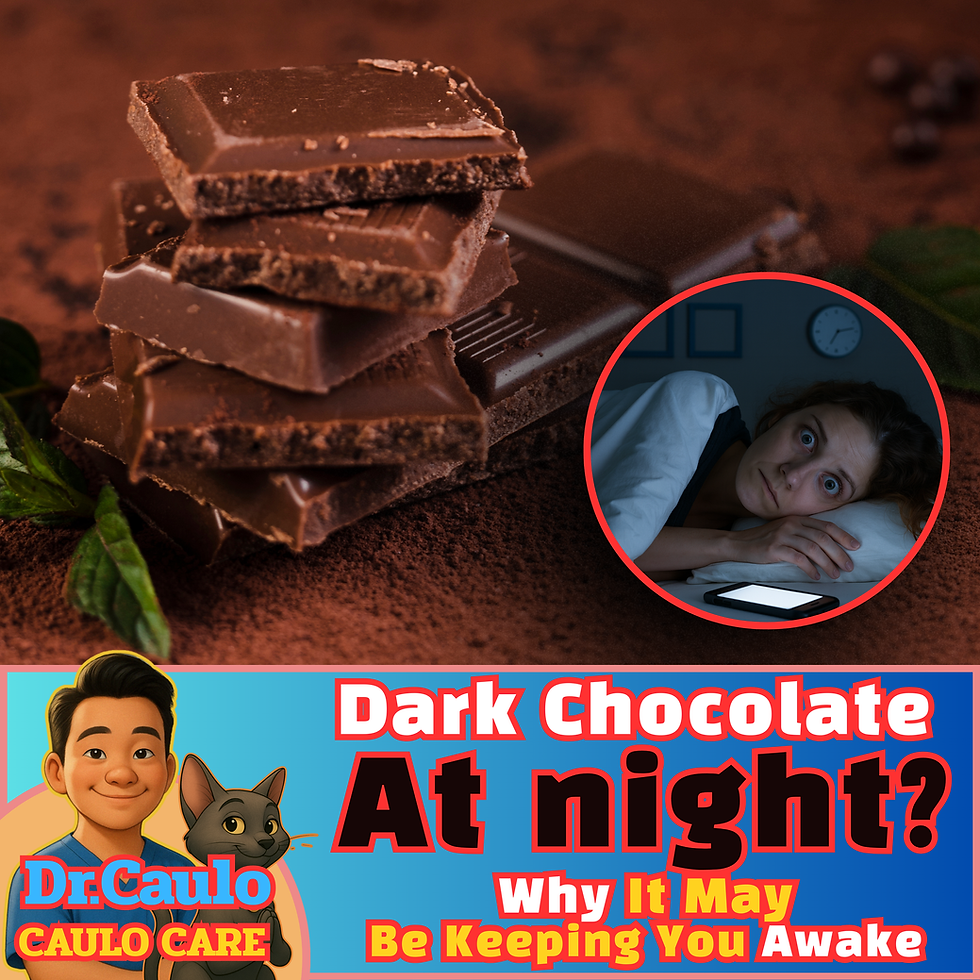Did We Eat Lunch... or Swallow a Sleeping Pill?
- caulocare
- Jun 12, 2025
- 4 min read

By Dr. Phumlarp Caulo| Caulo Care New York| June 12 2025
Have you ever finished lunch, sat back at your desk, and felt your eyes drifting shut as if you had just taken a sleeping pill? That sensation—so common yet often overlooked—is medically known as Postprandial Somnolence, or more casually, the "food coma."
This drowsiness is not a coincidence. It's a fascinating interplay between our nervous system, hormones, digestive process, and internal energy (Qi). In this article, I will explore both the Western medical explanation and the Traditional Chinese Medicine (TCM) perspective, while offering actionable tips for prevention and energy support.
🧬 Western Medicine: Why We Feel Sleepy After Eating
1. Parasympathetic Nervous System Activation
After a meal, the parasympathetic nervous system shifts into high gear to focus on digestion.
Blood is redirected from the brain to the gut, reducing mental alertness.
2. Blood Sugar and Insulin Spikes
Carbohydrate-heavy meals (rice, bread, sweets) lead to increased insulin levels.
Insulin raises tryptophan uptake in the brain, which converts into serotonin and then melatonin, a sleep hormone.
3. Gut Hormones That Sedate
Hormones like Cholecystokinin (CCK) and GLP-1 are released to aid digestion, and they also have mild sedative effects.
4. Brainwave Changes
EEG studies show brain activity after meals mimics early stages of sleep.
🌿 Traditional Chinese Medicine: Qi, the Spleen, and Digestive Fatigue
In TCM, digestion is governed by the Spleen and Stomach systems, responsible for extracting Qi (energy) from food.
1. Spleen Qi Overwork
The spleen (in TCM terms) works hard to transform food into usable energy.
If the spleen is weak, it struggles to send Qi to the brain, resulting in fatigue or drowsiness.
2. Central Qi Redistribution
Qi moves toward the center of the body after eating to support digestion.
This shift may temporarily reduce Qi flow to the brain, causing sleepiness.
3. Yin-Yang Balance Post-Meal
Food intake increases Yang (active energy), prompting the body to counter with Yin (cooling/rest energy).
This energetic balance invites restfulness.
4. Damp and Heavy Foods Impair Qi
Oily, sweet, or cold-natured foods burden the Spleen and lead to sluggishness.
✅ Best Practices for Avoiding Post-Meal Drowsiness
1. Eat smaller, more frequent meals to reduce digestive load.
2. Chew thoroughly to ease stomach burden and support Spleen Qi.
3. Take a gentle walk (10–15 minutes) post-meal to promote circulation and Qi movement.
4. Ensure sufficient nighttime sleep to prevent brain fatigue during the day.
5. Include foods that support digestion and Spleen function, such as oats, pumpkin, black sesame, and jujube dates. Herbal support includes codonopsis, angelica, and poria.
⚠️ Cautions and Common Mistakes
1. Avoid lying down immediately after meals → may trigger indigestion or acid reflux.
2. Minimize high-sugar or refined carb intake at lunch → spikes insulin and drowsiness.
3. Limit greasy, cold, or deep-fried foods → they "dampen" the Spleen in TCM.
4. Stop eating before you are overly full (70–80%) → prevents Qi stagnation.
🛡️ Long-Term Prevention and Support
1. Practice mindful breathing or meditation post-meal to reduce parasympathetic overactivation.
2. Supplement with appropriate herbs and vitamins:
Vitamin B-complex for energy metabolism
Magnesium & Vitamin C for smooth muscle and digestion
Zinc for enzyme support
TCM herbs like codonopsis, safflower, and poria
3. Prioritize sleep hygiene to reduce daytime fatigue.
4. Get lab work if drowsiness is excessive → to rule out diabetes, hypoglycemia, or hormonal issues.
🌟 Digestion-Friendly Foods to Include
Ginger: boosts digestive fire, relieves nausea
Papaya: contains papain enzyme
Pineapple: rich in bromelain
Yogurt, Kimchi, Fermented Vegetables: offer probiotics
Oats: soluble fiber supports gut motility
Warm teas: like chamomile or barley tea
🌿 Foods That Support Spleen Qi (TCM)
Fresh ginger (Sheng Jiang): warms and activates digestion
Jujube dates (Da Zao): tonify Qi and blood
Pumpkin (Nan Gua): supports spleen function
Brown rice, whole grains: nourishing and light
Chrysanthemum or barley tea (Yi Yi Ren): clears dampness and enhances Qi
Avoid if the Spleen is weak:
Icy drinks and raw cold foods
Fried and oily foods
Refined sugars and flours
Eating too quickly or without chewing
"Post-meal drowsiness isn’t a flaw—it’s a signal. Your body is working, your Spleen is calling, and your Qi is being used. Listen carefully, and you’ll find a path to better energy and digestion."
Dr. Phumlarp Caulo
Dr. Phumlarp Caulo LAc,MsAc,OM,DAHM,Pre-RN
Integrative Medicine Practitioner, bridging Eastern and Western Wisdom.
“Rooted in ancient wisdom, guided by modern science
On this page, we look back at history so you can move forward with health.
I believe in Mother of the Earth, the timeless healer of body and soul.”
This information is only educational and should not be construed as medical advice.
Everything must be balanced, and the suggestions may not apply to you.
A specialist doctor should be consulted for any medical advice or diagnosis.
BOOK AN APPOINTMENT NOW!
Acupuncture near me at Forest Hill, NY
🔶🔷🔶🔷🔶🔷🔶🔷🔶🔷🔶🔷
Dr. Phumlarp Caulo LA,c, MAc. OM, DAHM
Doctor of Acupuncture/Chinese Medicine
Caulo Care Acupuncture
🔖 By appointment only
☎️+1 (929) 269-4549




Comments